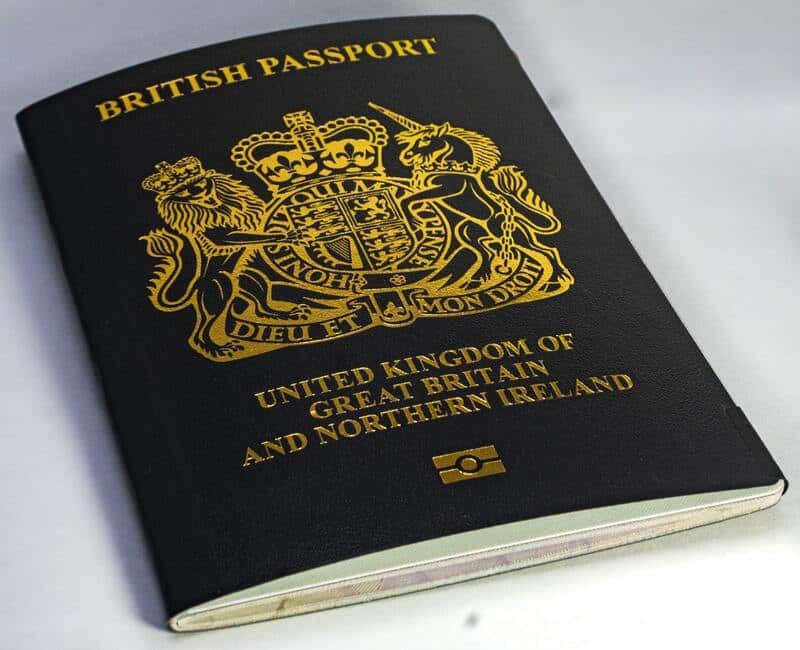“What happens if I give up my British citizenship?” is a question that many individuals in the UK may be considering, particularly in today’s constantly evolving society.
With Brexit and changing global immigration policies, citizenship and national identity are increasingly complex issues that require careful consideration.
The trend towards dual citizenship, for example, suggests that many people are seeking greater flexibility and opportunity in their lives. It is important, therefore, to understand the implications of giving up British citizenship.
This blog aims to provide a comprehensive overview of what happens when an individual decides to renounce their British citizenship.
Whether you’re considering giving up your British citizenship for career, personal, or other reasons, it’s essential to know the full range of consequences of such a decision.
This blog will explore the ten legal, financial, and practical implications of giving up British citizenship. It will also examine the process for renouncing citizenship, what happens to your right to live and work in the UK, the impact on your ability to travel, and much more.
If you are looking to invest as an expat or high-net-worth individual, which is what I specialize in, you can email me (advice@adamfayed.com) or WhatsApp (+44-7393-450-837).
Table of Contents
What are the reasons someone might choose to give up their British citizenship?
There are several reasons why someone might choose to give up their British citizenship.
One common reason is a desire to simplify their life. For individuals with dual citizenship, renouncing their British citizenship can help simplify their personal and financial affairs.
This may be particularly true for individuals who reside primarily outside of the UK and do not have a strong connection to the country.
By giving up their British citizenship, they can simplify their legal and tax obligations and eliminate the need to comply with two separate sets of laws and regulations.
Another reason someone might choose to give up their British citizenship is related to work or career.
For example, some individuals may wish to work for an international organization or in a foreign country where British citizenship could be seen as a hindrance or create a conflict of interest.
In these cases, renouncing their British citizenship may be seen as a necessary step toward achieving their career goals.
In some cases, an individual may choose to give up their British citizenship for personal or political reasons.
For instance, an individual who strongly disagrees with the policies or actions of the UK government may choose to renounce their citizenship as a form of protest.
Alternatively, an individual who has lived abroad for an extended period and feels more connected to their adopted country may choose to renounce their British citizenship and become a citizen of their new country.
Regardless of the reason, giving up British citizenship is a significant decision that requires careful consideration.
Before making a decision, it is essential to understand the implications and to seek professional advice, if necessary. This will help ensure that you make an informed decision that is right for you and your future.

What happens to my right to live in the UK if I give up my British citizenship?
Giving up British citizenship can significantly affect an individual’s right to live in the UK.
If you’re a British citizen and you renounce your citizenship, you will no longer have an automatic right to live in the UK.
If you want to return to the UK at a later date, you may need to apply for a visa or permission to enter the country. The type of visa or permission you need will depend on the specific circumstances of your case.
If you have lived in the UK for an extended period, you may have established a right to permanent residency.
However, you will lose your right to permanent residency if you renounce your British citizenship. Hence, if you want to return to the UK, you must apply for a new visa or permission to enter the country.
In some cases, individuals who have renounced their British citizenship may be able to return to the UK as a visitor.
However, there are restrictions on the length of time they can stay and the activities they can undertake while in the country.
It’s important to note that if you give up your British citizenship, you will also lose your right to vote in the UK and access public services, such as healthcare.
What happens to my right to work in the UK if I give up my British citizenship?
If you renounce your British citizenship, you will also lose your right to permanent residency and, thus, need to apply for a work visa if you wish to work in the UK.
For non-British citizens, obtaining a work visa can take time and effort.
It involves obtaining a job offer from a UK employer and meeting various immigration requirements, including obtaining a certificate of sponsorship from your employer and passing a Points-Based System assessment.
What impact will giving up my British citizenship have on my ability to travel?
If you renounce your British citizenship, you will no longer have a British passport and will need to apply for a passport from another country if you wish to travel internationally.
The process of obtaining a passport from another country can be time-consuming and may involve meeting various eligibility criteria, including residency requirements and citizenship laws.
Some countries may also require a visa for entry, even if you hold a passport from that country. The process of obtaining a visa can be complex and may involve meeting various requirements, including proof of financial support and a clear criminal record.
Additionally, if you renounce your British citizenship, you may be subject to restrictions on travel to certain countries.
Some countries may view individuals who have renounced their citizenship with suspicion and may deny entry or restrict travel for security reasons.
Hence, it is essential to research the specific travel restrictions that may apply to you if you renounce your British citizenship.
Will giving up my British citizenship affect my eligibility for public services in the UK?
As a non-British citizen, you may no longer be entitled to certain services and benefits available to British citizens. This can include access to healthcare, education, and housing services.
You may no longer be eligible for free access to the National Health Service (NHS) and may need private health insurance to cover your medical needs.
Additionally, if you’re no longer a British citizen, you may not be able to access publicly funded education services, including schools and universities.

What happens to my pensions and benefits if I give up my British citizenship?
Giving up your British citizenship means if you have paid into the UK’s state pension system, you may no longer be eligible for a state pension when you reach retirement age.
You may also lose access to other benefits, such as jobseeker’s allowance or disability benefits.
Additionally, if you’re a workplace pension scheme member, your rights and entitlements under that scheme may be affected if you renounce your British citizenship.
It’s essential to seek professional advice to understand the consequences of giving up your British citizenship for your pensions and benefits. This will help you make an informed decision and take the necessary steps to protect your financial future.
If you plan to move to another country, you should research that country’s pensions and benefits systems and seek advice on how to transfer your pensions and benefits if necessary.
What are the tax implications of giving up my British citizenship?
Giving up your British citizenship can also have significant tax implications.
As a non-British citizen, you may no longer be subject to UK tax on your worldwide income and capital gains.
However, you may still be required to pay taxes in your new country of citizenship or in any country where you have a taxable presence.
For example, if you move to a country with a higher tax rate than the UK, you may be required to pay more tax on your worldwide income.
Likewise, if you own assets or have income sources in multiple countries, you may need to navigate complex cross-border tax rules to ensure that you comply with tax laws in all relevant countries.
You may also need to pay taxes on any gains you make from the sale of your UK property, and you may be subject to inheritance tax on your worldwide estate if you have assets in the UK.
What happens to my family’s citizenship status if I give up my British citizenship?
If you have a spouse or children who are also British citizens, their citizenship status will not be affected if you renounce your British citizenship. They will continue to hold their British citizenship and all the rights and privileges that come with it.
However, if your spouse or children are dependent on your citizenship for their own, for example, if they obtained British citizenship through marriage or descent, they may need to take steps to secure their citizenship if you give up your British citizenship.
In these cases, it’s essential to seek professional advice to understand the specific consequences for your family and to take the necessary steps to secure citizenship if required.
This will help ensure that they have the right to live, work, and access public services in the UK and that they are not affected by your decision to renounce your British citizenship.
What happens if I give up my British citizenship permanently?
Once you give up your British citizenship, you can never get it back. This means that you will permanently lose your right to live, work, and access public services in the UK and your right to vote and participate in UK elections.
Giving up your British citizenship may affect your ability to travel, as you may be subject to different visa requirements and may need to apply for visas to enter certain countries.
Additionally, you may be subject to different entry and exit requirements and may need to provide additional documentation when traveling to and from the UK.
Finally, giving up your British citizenship may impact your professional and personal relationships in the UK and your ability to access certain professional opportunities and networks.
Is it possible to regain British citizenship after giving it up?
Once you have given up your British citizenship, it is generally impossible to regain it. Renouncing British citizenship is permanent, and there is no mechanism for undoing it.
Hence, it is important to carefully consider the consequences of giving up your British citizenship before making a final decision, as it is a serious and irreversible step.
If you have any questions or concerns, it is advisable to seek professional advice to ensure that you are fully informed and aware of the implications of your decision.
What is the process for giving up British citizenship?
The process for giving up British citizenship involves several steps.
To renounce your British citizenship, you must first meet the eligibility criteria. You must hold another nationality and be able to provide evidence of this, and be over 18 years old.
You must also be of sound mind and not be subject to any restrictions that would prevent you from renouncing your British citizenship.
The next step is to complete the application form for renunciation of British citizenship and submit it to the Home Office.
Along with the application form, you will need to provide proof of your identity, your other nationality, and your eligibility to renounce your British citizenship.
Once your application has been received, it will be processed by the Home Office. This can take several months, and you will be informed of the outcome of your application in writing.
If your application is approved, you must attend a ceremony to take an Oath of Renunciation. This is a formal declaration that you are renouncing your British citizenship and must be taken in front of a British consular official.
After taking the Oath of Renunciation, you will receive a renunciation certificate. This certificate serves as official proof that you have given up your British citizenship.

Can I get denied in my application to renounce my British citizenship?
Yes, it is possible for your application to renounce British citizenship to be denied.
The decision to approve or deny an application is made by the Home Office and is based on several factors, including eligibility criteria, the validity of the information provided, and any other relevant circumstances.
If you are denied, you will receive a letter explaining the reason for the decision, and you may be able to appeal the decision if you believe there has been a mistake or if new information has come to light.
It may be denied if your application is missing information or if the information provided is inaccurate.
To be eligible to renounce your British citizenship, you must hold another nationality and be able to provide evidence of this. If you cannot provide sufficient evidence, your application may be denied.
If you are subject to restrictions, such as a court order or a ban from entering the UK, your application to renounce your British citizenship may be denied.
Also, if you have dual nationality and do not intend to give up your other nationality, your application may be denied, as you must be able to provide evidence of your other nationality to be eligible to renounce your British citizenship.
Conclusion
Giving up your British citizenship is a significant decision that should not be taken lightly.
Understanding the consequences of this decision is crucial, as it will impact various aspects of your life, including your right to live and work in the UK, your ability to travel, and your eligibility for public services and benefits.
Remember that giving up your British citizenship is a permanent decision and that, once completed, it may not be possible to reverse.
Therefore, it is essential to fully understand this decision’s long-term effects and be confident that you are making the right choice for yourself and your family.
Pained by financial indecision? Want to invest with Adam?

Adam is an internationally recognised author on financial matters, with over 760.2 million answer views on Quora.com, a widely sold book on Amazon, and a contributor on Forbes.



